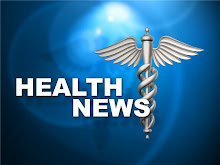Doctor Healthy Search

Custom Search

LYNCH SYNDROME AND CANCER RISK
Mutations in genes that fix mismatched DNA have a well known association with colon and endometrial cancers, and now it appears they may also put people at extra risk for breast cancer and pancreatic cancer.
The mutations, known collectively as Lynch syndrome, "are very rare," according to Dr. Mark Jenkins, from the University of Melbourne. Researchers don't know exactly how common Lynch syndrome is, in part because people aren't generally tested unless they have a family history of colon or endometrial cancer.
Dr. Jenkins, senior author of a paper online Monday in the Journal of Clinical Oncology, said that at most one in 1,000 people probably has the condition.
Still, "the consequences for them are quite severe because the risks of cancer for them are quite high," Dr. Jenkins told Reuters Health.
His colleague Dr. Aung Ko Win led a team of researchers from Australia, New Zealand, Canada and the United States who followed 446 people with the gene mutations and 1,029 of their mutation-free relatives who were tested because someone in their family had colon or another cancer.
At the start of the study, none of the participants had been diagnosed with cancer themselves.
Among people with a family history of colon cancer, 4% of those with mismatch repair gene mutations were diagnosed with the disease during the next five years, compared to less than 0.5% of their mutation-free relatives.
Dr. Jenkins and his colleagues calculated that over five years, people with Lynch syndrome had 20 times the normal risk of colon cancer. Their risk was also 10-fold higher for pancreatic cancer, and four-fold higher for breast cancer.
People with the mutations also seemed to be at increased risk of endometrial, ovarian, stomach, bladder and kidney cancers.
In contrast, their relatives without the mutations didn't have an increased risk of any type of cancer, compared to expected rates of new diagnoses.
The link between Lynch syndrome and breast cancer in particular is still a controversial one, according to Dr. Albert de la Chapelle, a cancer geneticist from The Ohio State University in Columbus.
"It could be that there really is a slightly increased risk to get breast cancer," said Dr. de la Chapelle, who has worked with some of the authors before but wasn't involved in the new report.
But the conclusions, he said "are based on very small numbers," for example just 12 cases of breast cancer in mutation carriers and non-carriers combined.
Dr. Jinru Shia, from Memorial Sloan-Kettering Cancer Center in New York, told Reuters Health that the breast cancer result "goes along with our anecdotal experience" at her hospital.
The findings don't mean that everyone who tests positive for Lynch syndrome should get frequent screening for all cancers that were tied to the gene mutations, researchers agreed.
"Currently, screening is recommended for bowel cancer for people with this mutation, and we know that that screening works. For other cancers, there's less evidence that screening is effective," Dr. Jenkins said.
Meanwhile, Dr. Jenkins said the results are encouraging for the family members of people with Lynch syndrome who are themselves mutation-free and "don't need to worry" about any extra cancer risk.
That's been a concern because researchers have thought other genes, besides the four Lynch syndrome mutations, could be influencing cancer risks in those families.
"Now, one can say with confidence that those who turn out not to have the mutation, that their risk is the average risk," Dr. de la Chapelle told Reuters Health.
Subscribe to:
Post Comments (Atom)



























































0 comments:
Post a Comment